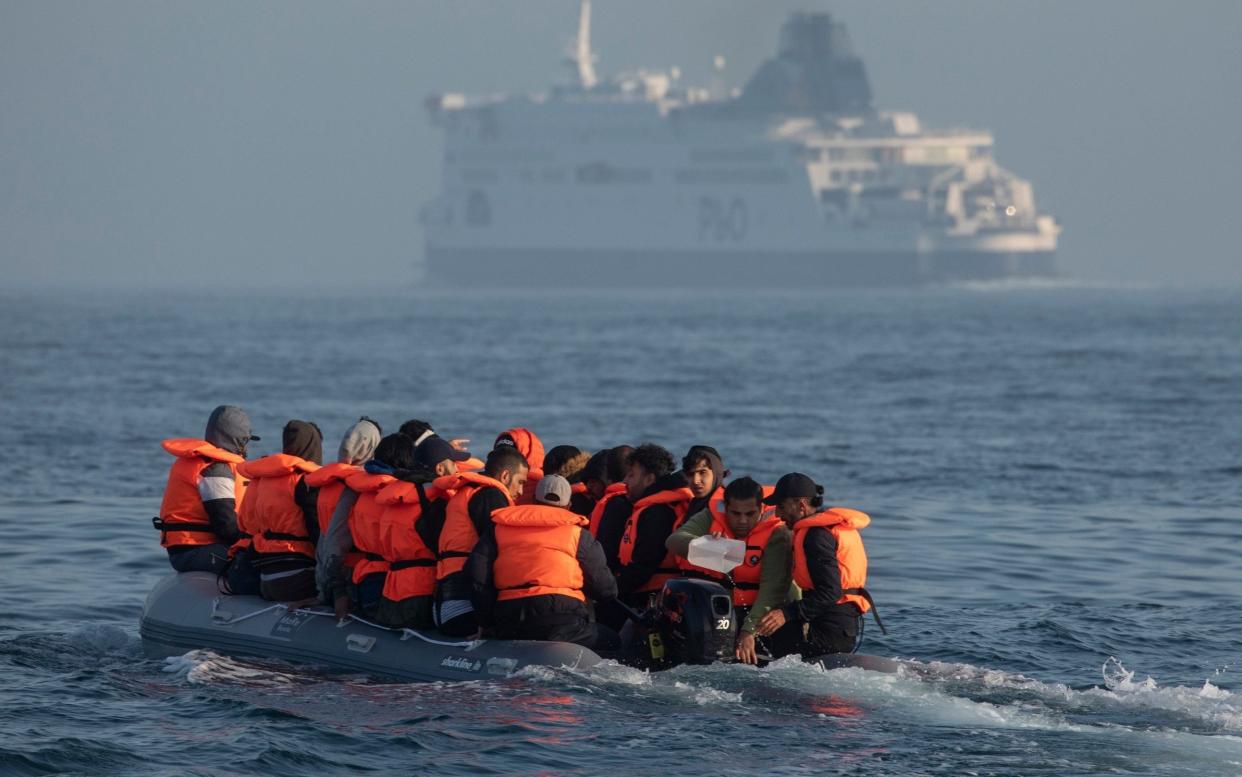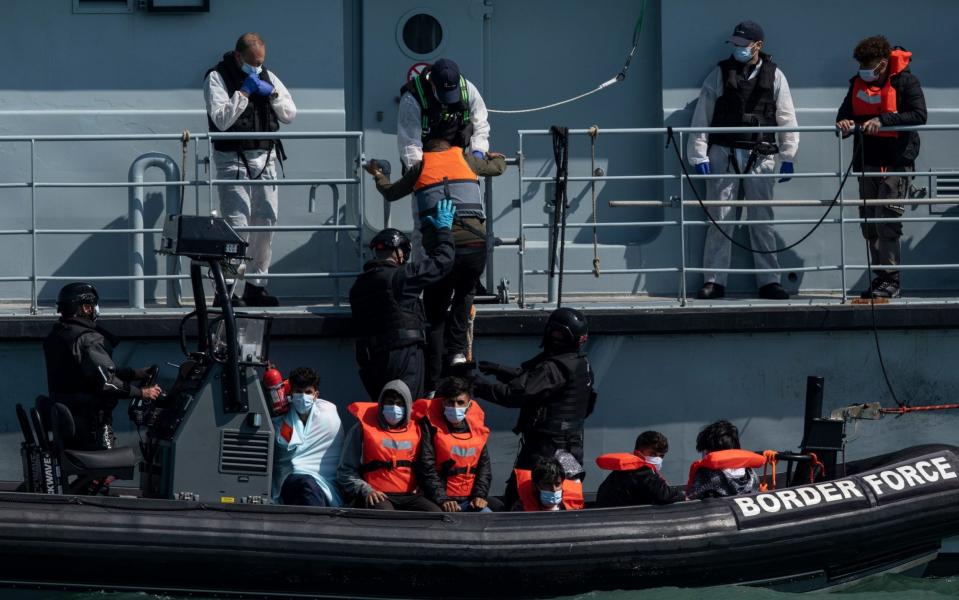France can’t stop every migrant – no matter how much it is paid by the UK, warns Calais MP

- Oops!Something went wrong.Please try again later.
France will not be able to stop every migrant no matter how much money Britain hands over to it, the MP responsible for the French migrant hotspot has said.
Pierre-Henri Dumont, the Republican Party MP for Calais, said the extra £54 million given to France this week by Priti Patel, the Home Secretary, would only damage Anglo-French relations because UK taxpayers would see it "wasted" on fruitless attempts to stem the surge in Channel migrants.
"We will not find a solution and we are going to a dead end with this money, money, money. It's not possible to go on like this," Mr Dumont told The Telegraph, describing the increasing levels of funding from Britain to France as a "vicious" circle.
"What I think is that we need to create a special detention camp for people who are in France illegally and then help them to fill in their asylum applications in France," he said.
His comments come at the end of a week when the number of migrants reaching UK shores so far this year surpassed the record 8,417 for the whole of 2020. More than 1,000 crossed in five days, starting with a record daily total of 430 on Monday.
Charities told The Telegraph that there are already some 2,500 more migrants waiting in northern France to make the crossing in the coming summer weeks, double the number in December.

The millions being given to France will double the number of gendarmes on the beaches to 200 and pay for increased use of surveillance technology such as drones.
It follows a similar £28 million package last November and more than £110 million since 2015 to combat illegal migrants.
But Mr Dumont said: "The fact is that we cannot stop everyone from crossing because there are just too many people and the coastline is too big. So they [the British people] are giving more money from their own taxes that's going to waste. It's going to harm the relationship between the two countries.
"The British Government is just giving more and more money to the French authorities to reinforce security on the French shores and basically that's something that doesn't work. We've seen that. We've seen that more money doesn't mean the crossings will stop because we cannot monitor 400km, 500km, 600km of shorelines.
"Just on Monday you had 28 small boats going to the sea. You cannot have 28 patrols going at shore all at once. It's only possible if we have wires, cameras and fences, and that's not possible either. We aren't going to build walls from Belgium to Normandy on the French shores."
Ms Patel and her French counterpart, Gérald Moussa Darmanin, the interior minister, aim to persuade the EU to agree to a replacement for the Dublin Agreement, designed to enable European countries to share the burden of asylum-seekers crossing the continent.
Since Brexit killed off the agreement, Britain has failed to secure a deal with any EU nations to take back any migrant who passed through their borders and should have claimed asylum in the first safe country they entered.
The UK Government's longer-term strategy – to effectively close off asylum to illegal migrants but accept those who arrive in the UK with the Government’s prior agreement – depends on negotiating such post-Brexit Dublin-style deals with other countries.
For French politicians such as Mr Dumont, however, there is a quid pro quo for any such deal – that Britain should take its "fair share" of migrants with their applications processed on mainland Europe to prevent them crossing the channel in boats.
It is a potential deal-breaker in any negotiations with the UK, but Mr Dumont said: "We registered four times more asylum applications than the UK, so we are playing our part. The fact is the UK right now is not taking its part of the burden of asylum seekers."

